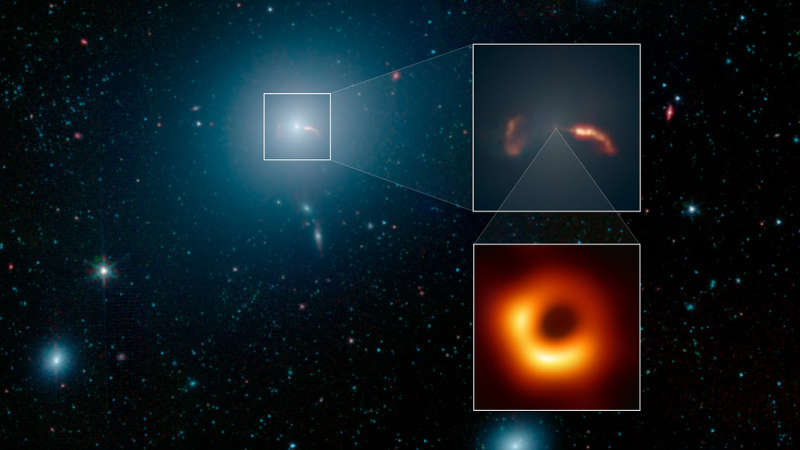The Galaxy, the Jet and the Black Hole

Explanation:
Bright elliptical galaxy
Messier 87 (M87) is home to the
supermassive black hole captured by planet Earth's
Event Horizon Telescope
in the first ever image of a black hole.
Giant of the Virgo galaxy cluster about 55 million light-years away,
M87 is the large galaxy rendered in blue hues in this infrared
image
from the Spitzer Space telescope.
Though M87 appears mostly featureless and cloud-like,
the Spitzer image does record details of relativistic
jets blasting from the galaxy's central region.
Shown in the inset at top right, the jets themselves
span thousands of light-years.
The brighter jet seen on the
right is approaching and close to our line of sight.
Opposite, the shock created by the otherwise unseen receding jet
lights up a fainter arc of material.
Inset at bottom right, the
historic black hole image is shown
in context, at the center of giant galaxy and relativistic jets.
Completely unresolved in the Spitzer image, the supermassive
black hole surrounded by infalling material is the source of the
enormous energy driving the relativistic jets from the
center
of active galaxy M87.
Authors & editors:
Robert Nemiroff
(MTU) &
Jerry Bonnell
(USRA)
NASA Web Site Statements, Warnings,
and Disclaimers
NASA Official: Jay Norris.
Specific
rights apply.
A service of:
LHEA at
NASA /
GSFC
& Michigan Tech. U.

